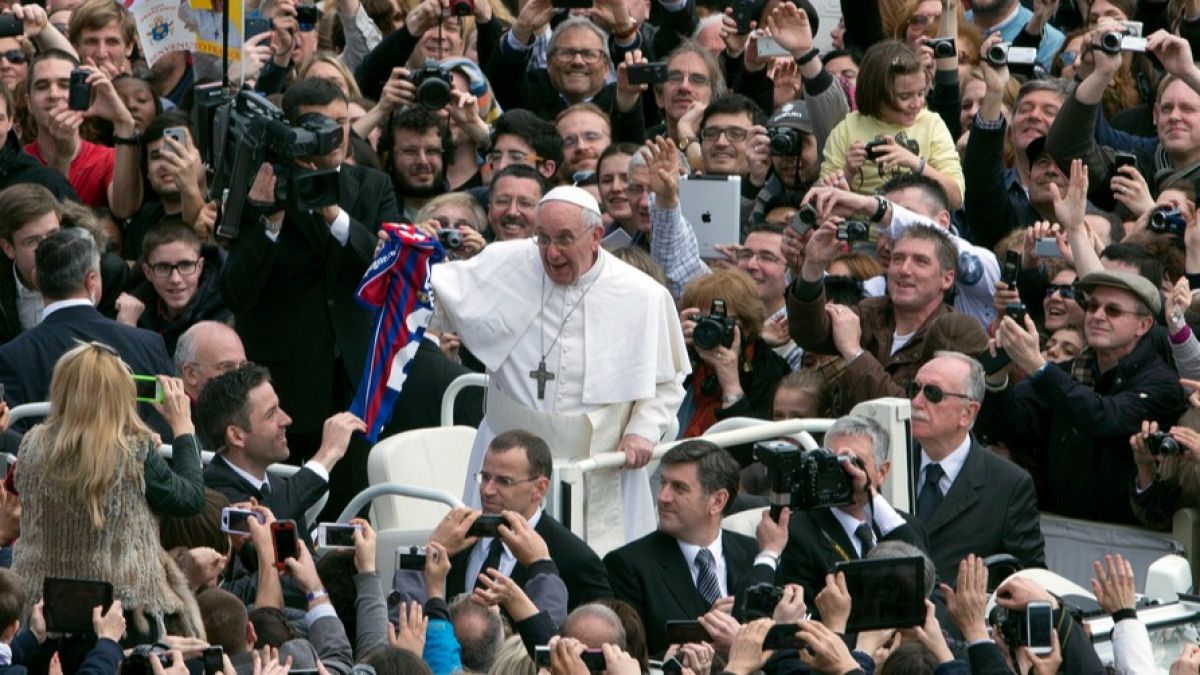Pope Francis, born Jorge Mario Bergoglio in Buenos Aires on 17 December 1936, was elected Pope on 13 March 2013, becoming the first Jesuit and the first Latin American to occupy the throne of St Peter.
His papacy was marked by a strong focus on social justice, the fight against poverty and a call for global peace.
Despite his connection to Argentina, Francis never made a pastoral visit to his native country during the 12 years of his pontificate. Speculation about this decision varied: some analysts suggested that he was avoiding involvement in the country’s political polarisation, while others pointed to agenda reasons and international commitments.
On several occasions, the Pope mentioned his intention to travel to Argentina, although it never materialised.
In Buenos Aires, thousands of faithful gathered to pay homage at the Metropolitan Cathedral, where Bergoglio celebrated mass during his years as archbishop. In different cities around the country, vigils and religious services were held in memory of the pontiff.
In Argentina, the figure of Francis was the subject of admiration and debate. His relationship with the governments in power and his opinions on the social and political reality of the country generated different interpretations.
The Argentine presidency, led by Javier Milei, issued a statement on social networks.
“The Office of the President regrets the death of Pope Francis, Jorge Mario Bergoglio, who in 2013 became the first Argentine to lead the Catholic Church and lead it with dedication and love from the Vatican,” the Office of the President stated in a post on social media platform X.
“President Javier Milei highlights the tireless struggle of Francis’ Papacy to protect life from conception, promote interreligious dialogue and bring spiritual and virtuous life to the youngest,” the message continued.
Other Argentinian political figures also spoke out on Pope Francis’ death.
Two-time president (2007-2011 and 2011-2015) and former vice-president (2019-2023) Cristina Fernández de Kirchner, with whom Francis had several run-ins during his years as archbishop, spoke out on social media.
“He was the face of a more human Church, with his feet on the ground, without ceasing to look at the sky. We are going to miss you Francis, the sadness we have is infinite”, he wrote on X.
Mauricio Macri, the country’s former president (2015-2023), also issued a statement.
“His life was marked by the teachings he gave with his words, his commitment and his gestures. He himself, with his trajectory, is a lesson for everyone,” Macri wrote on X.
A feeling of ‘orphanhood in the face of our father’s death’
The Archdiocese of Buenos Aires expressed the pain of the loss with moving words: “We experience the orphanhood before the death of our father who we know loved so much the city of Buenos Aires and this Archdiocese”.
The Church in Buenos Aires recalled the deep affection Francis felt for his hometown and for the community he served for so many years.
“We ask the Risen Jesus to be able to make his legacy concrete in our beloved Church of Buenos Aires: to be a Church for all, a merciful Church, a joyful Church committed to the poorest,” the leaders of the Archdiocese said.
“We invite the whole community to pray during these days for his eternal rest in the parishes, shrines, churches, chapels and schools of our Archdiocese.”
Francis, who became a symbol of humility, dialogue and commitment to the most vulnerable, leaves an immense spiritual legacy. His departure marks the end of an era, but also opens a path of reflection on the message he left behind: the call for a more accessible, empathetic and inclusive Church.
Pope Francis’ legacy includes initiatives of openness and modernisation in the Church, such as the promotion of inter-religious dialogue, attention to migration crises and an emphasis on environmental protection.
He was also a critical voice in the face of economic inequalities and international conflicts.
The Vatican announced that a period of mourning will be opened, followed by the conclave that will elect his successor.
Meanwhile, political and religious leaders from around the world have expressed their condolences and highlighted the Pope’s work for human rights and peace.

